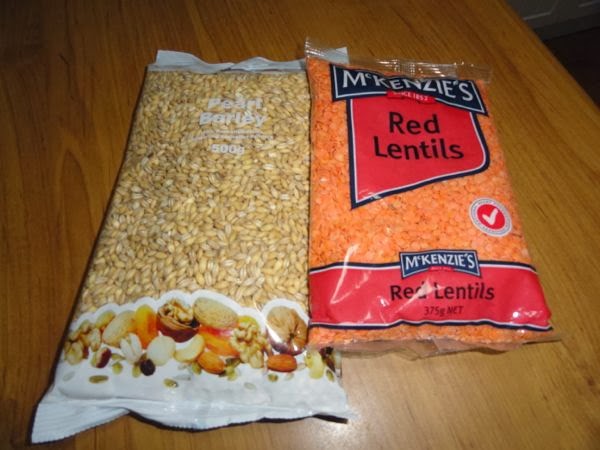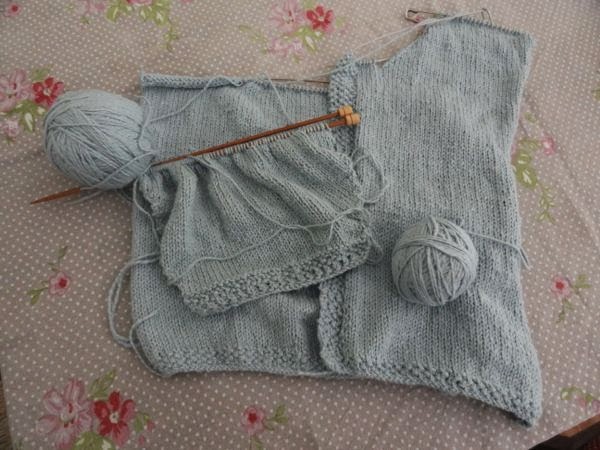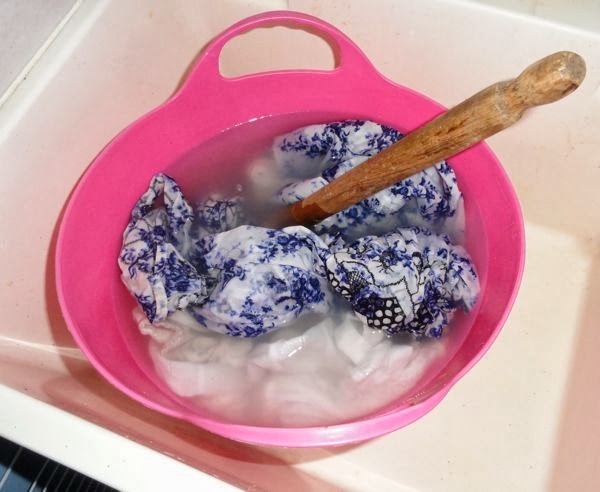A week or so ago I said I'd answer any questions you had. I got two questions, both set out below. I hope both ladies are still reading.
We'd eat food from the stockpile and garden.
I'd use what was in the fridge in those first few days and cook what I could outside.
Most of the cooking would be done on a camp fire. I'd bake using a cast iron camp oven.
There would be plenty of early nights for both of us.
And a lot more time spent in the garden making sure we had a continuous supply of food. I think I'd continue writing using a notebook and a pencil.
We have a very old BBQ that we could use the grill off to cook on outside over an open fire. We have plenty of wood around here, we have water in the tanks and a creek flowing in the back yard. I know I'd miss my computer, the blog and the forum but I think I'd convince myself that missing such things would be good for me. I hope I'd gain strength from it rather than caving in and complaining about it.
To answer your question, I think I'd be more prepared for a time like that because we live a simple life and I'd also accept the hardship that came with it as just one of those things. And even it it did stretch on for a few months, while the first month would be exciting and new, the rest of it, I'm pretty sure, I'd just take in my stride - mainly because of my lifestyle.
Hi Rhonda,
I have a question for you about adding more chickens to the flock. How did you introduce them into your flock. We are hoping to add a couple more chickens in the spring. We will be raising them as chicks separate, then when they are old enough we would add them to the flock. So at what age do you introduce them and how?
As for simple living we started with one thing then added another. We do what we can and your right simple living is different for each of us. Love your blog!
Hanno pruned the lemon tree yesterday and threw the branches into the chook run. Chickens love exploring and climbing and it wasn't long before our girls had sorted through those new branches.
And one of our newer blue Barnevelders found herself a new roost.
This isn't on subject but I can show you the difference in combs and wattles as a chicken ages. If you have a look at the next three photos, it will give you a good idea for what to look for when a chicken is maturing and getting ready to lay eggs. The Barnevelder above has a small, pink comb and her wattles, below her beak, haven't grown at all. She not laying yet.
Madam above is a little older. Her comb is smallish, but bigger than the Barnevelder's and it's red. This blue Australorpe has just started laying.
And Lulubelle here is about four years old and has been a good layer for a few years. You can see her comb and wattles are fully developed and red. This photo isn't showing the accurate tone of red, it's quite a bright red. When a chicken starts getting sick, often her comb and wattles will be pink instead of red.
Simplefree, when you get new chickens you have to already have everything ready for them. Chooks bond to their territory so it's not wise to give them a temporary home and then move them again. Make sure their permanent home is ready, safe and secure. When you bring new chickens or chicks home they should be separated from the older girls to make sure they aren't bringing in any diseases. They should be placed in their new home for at least a week before they are allowed to roam or mix in with other yard animals or birds. That will allow them to bond with their new place and they'll learn where they come back to every night.
If you're bringing small chicks home, you'll need to provide warmth for them if you're in a cold climate. If you're in a warm area, a small coup out of the weather and wind, and away from the other chickens, will be fine. During the day they'll need enough space to walk around and see the other chooks (through wire) and they'll need a roost at night. They must have clean water and food every day but won't need a nest for a few months. If you want them to eat greens and kitchen scraps, introduce them during that early period and they'll be good eaters all their lives.
You can introduce the chicks to their older sisters when they big enough to cope with the bigger birds - maybe around two or three months of age, depending on their breed. If they're small birds, wait longer. On the day you introduce them to the same living quarters, wait until almost nightfall and in the twilight bring the new girls in. Generally at that time of night, the priority will be to settle for the night and with the fading light they probably won't take much notice. The next morning, be out there early to make sure the little ones have been accepted. There will be a period of establishing the pecking order, there always is, it's natural chook behaviour. You have to allow that to happen and only remove the chicks if there is a blood injury. If that happens, take at least two of them out because chicks need other chicks. If you only have three new chicks, take all of them out. If there are four, take out two and leave two if the remaining two have no injuries and seem to be coping. Keep the chicks separate until the injury has healed and try again. Good luck.






























































.jpeg)





.jpeg)
.jpeg)
.jpeg)

I guess the first thing I'd do would be to harvest all the ice in the freezers and use that in an Esky. Into the Esky I'd place a few eggs, cheese, butter and milk. With those four cold items and my stockpile we could easily live quite nicely for a month or so. Then I could stretch it out to four or five months, but I doubt I'd be seeing it as an adventure then. It would just be getting by. It would also depend on the time of year it happened. If we had a garden full of vegetables, that we do have from about late April till December or January, we'd be fine. We'd still have the fresh eggs from the chickens too and I'd still be able to collect milk from my local dairy. If the power was out in the whole region, after that first lot of ice, I'd have to store my dairy food and eggs at Jens and Cathy's. They live in the same town.